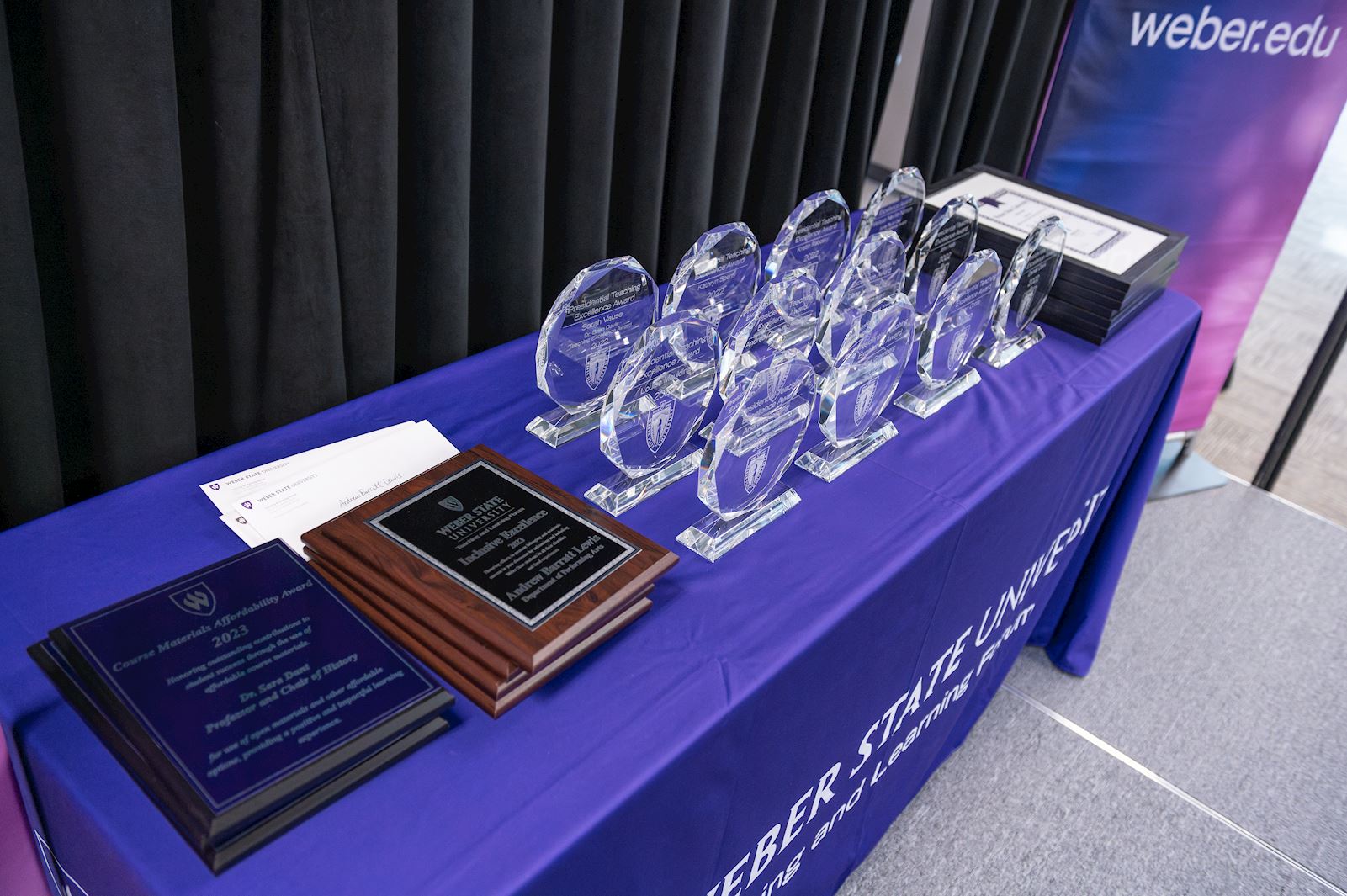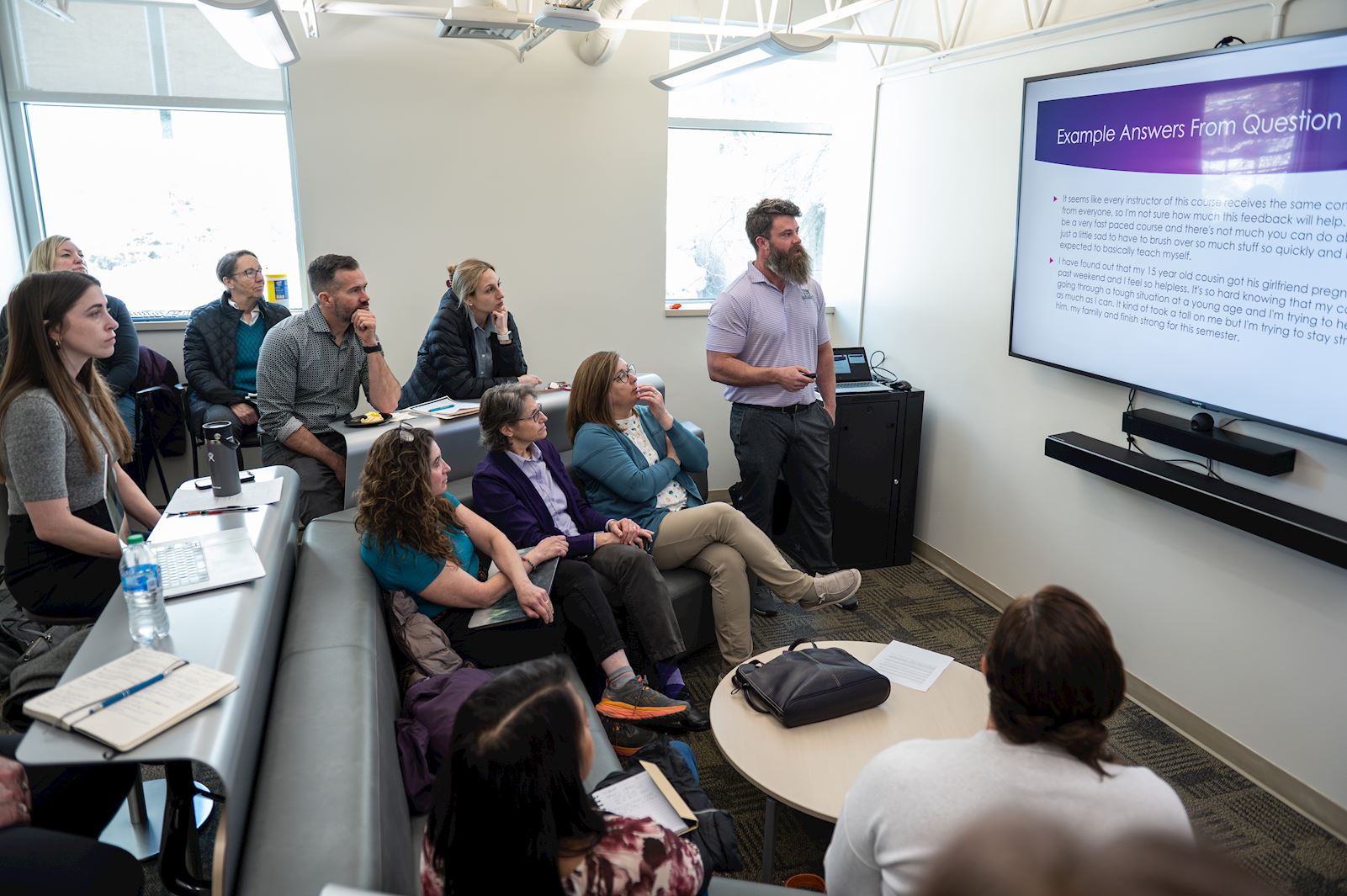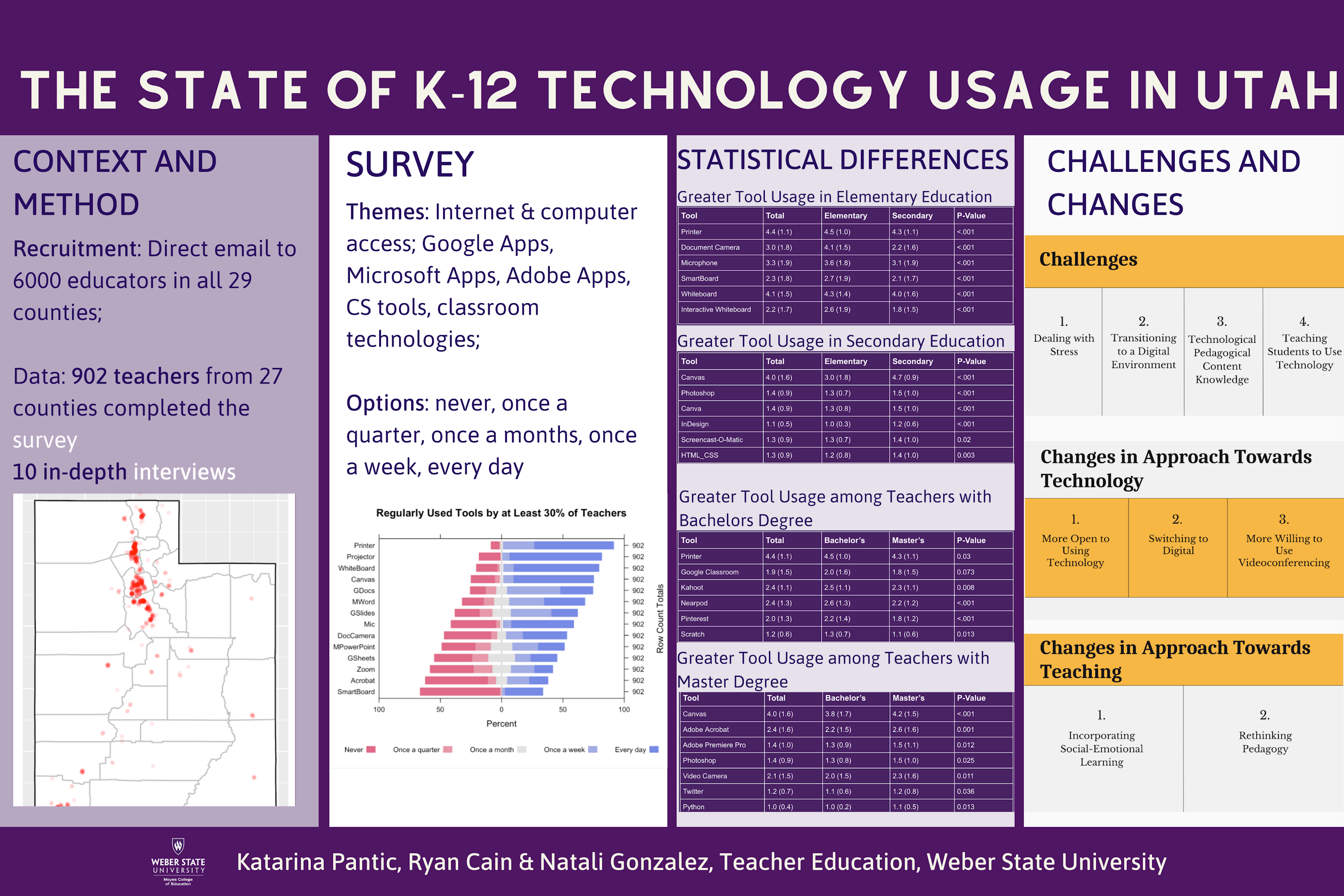
Celebrating Weber State's Teaching, Service and Scholarship

Award and Grant Recipients
Learn more about our
2023-24 Teaching Award and Grant Recipients.

Thrive Symposium Session Schedule
Review the schedule
for the Thrive Symposium.

Poster Presentations
Coming Soon: View posters from our faculty members and grant recipients.